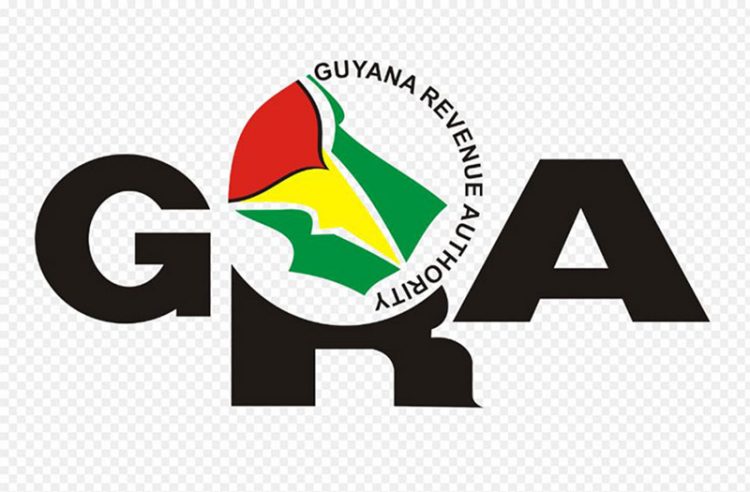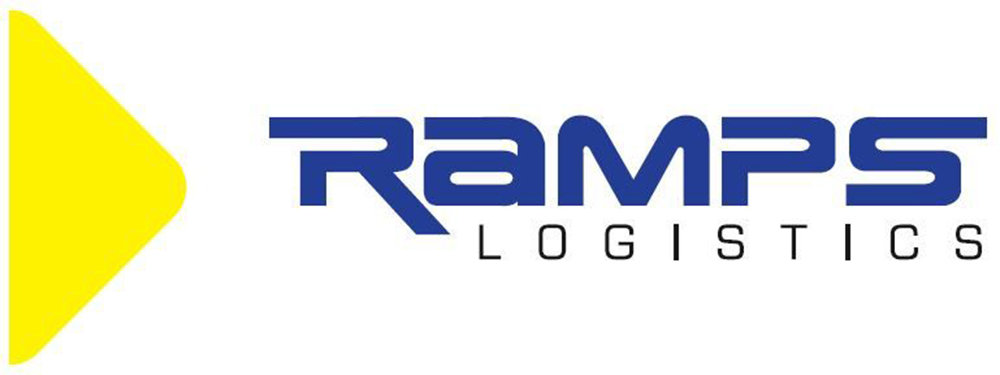The Guyana Revenue Authority (GRA) yesterday filed 10 charges against Ramps Logistics Guyana (RLG) for false declarations but the company says the charges are null and void and it pointed out that the court action had come just days after it had sought judicial review over the conduct of the Local Content Secretariat.
In a statement, the GRA said that the charges stem from recently completed investigations carried out by its Law Enforcement and Investigations Division. It noted that the charges were filed yesterday in accordance with the provisions of the Customs Act Chapter 82:01.
The investigation determined, among other things, that during the period 2021 to 2022, RLG – whose parent company is in Trinidad and Tobago – made several untrue declarations to the Revenue Authority.
 Stabroek News has been able to obtain two of the charge sheets. The charges were filed before Magistrate Leron Daly.
Stabroek News has been able to obtain two of the charge sheets. The charges were filed before Magistrate Leron Daly.
One of the charges states “The defendant on the 29th day of June 2022 at lot 200-201 Camp Street, Georgetown, a place in the Georgetown Magisterial District, made and subscribed a false declaration to the Revenue Authority, to wit the defendant falsely declared itself to be the sellers of a quantity of Barite listed on invoice number INV#MVKAWA1EP-20 dated on the 21st day of March 2022.”
The other said that on May 20, 2022, Ramps “made a declaration for the consideration of a Customs Officer on an application presented to him for tax exemption of a quantity of hydrated lime and calcium chloride wherein the defendant untruly declared itself to be the seller of the said items listed on the Invoice No. CGX-EP-V7-IMD7 dated on the 13th day of May 2022.”
The authorities and Ramps Logistics have been sparring publicly for a number of months following the denial of Ramps’ application for a Local Content Certificate. There has been back and forth, in the press, between the company, GRA and the Local Content Secretariat.
Yesterday, Ramps said that this latest resort to the court comes a mere five days after it approached the courts for judicial review against the Local Content Secretariat.
On September 30, RLG approached the High Court for relief. The move came 41 days after the company submitted additional documents to the Secretariat where its application for a Local Content Certificate is pending.
Ramps Logistics has been pushing for its certification in order to bid for a renewal of a contract with businesses supporting oil and gas activities.
In its statement yesterday, Ramps said that the charges will be reviewed and responded to by its attorneys. It cited a number of dates to support its contention that the charges are without merit. It noted that there are no taxes or duties applicable on the imports and so there is no loss of revenue to the GRA.
The company said that on July 12th, 2022, GRA wrote to it informing of an investigation into alleged false declarations. The letter, signed by Deputy Commissioner of GRA’s Law Enforcement and Investigations Division Jason Moore, informed that an investigation was conducted and a number of findings were revealed.
GRA said that it found that Ramps Logistics acted as the Customs Agent for CGX Resources Inc. for the period 2021 to present and during that period made several customs declarations. It contended that the company submitted falsified invoices for the customs declarations to present themselves as the supplier for the items imported by CGX Resources Inc.
As such, Moore informed Ramps that the actions constituted a breach of the provisions of Section 217 (1) (a) of the Customs Act, Chapter 82:01 and therefore, GRA would be instituting legal proceedings unless the company can show cause for its actions.
Sufficient justification
“…your company is therefore required to provide sufficient justification to the satisfaction of the Revenue Authority which can be considered in law, within fourteen (14) days of service of this letter, why your company’s Customs Brokerage Licence should not be revoked in accordance with the provisions of the Regulations made under the Customs Act, Chapter 82:01. Please note, if your company fails to act accordingly within the stipulated time frame, or the justification provided cannot be considered in law, the Revenue Authority will take the necessary actions as stated herein,” the letter related.
RLG, through its lawyers Satram & Satram, responded on July 25 stating that the allegations raised by the GRA had no basis in law and outlined the sections of the Guyana Customs Act that they relied on to form this opinion.
In their letter Ramps denied submitting falsified invoices and said that the documents submitted are of its client CGX. It said that the GRA failed to identify the nature of the falsification and the impact any such falsification had on the revenues of the state.
In defence of its customs broker licence, Ramps argued that the breaches have not been established nor are they serious in nature. It maintained that the company has not submitted any falsified invoices as alleged and that all invoices submitted were accurate.
The letter further argued that the GRA has misinterpreted the provisions of the Customs Act, more particularly S217 (a) of the Act. It noted that the provisions of the Act provide a penalty for a false declaration.
A declaration is defined in regulation 2 of the Customs Regulations to mean the specification, description and documentation as prescribed in Form C72. The form submitted by Ramps does not contain any false declaration, the company said.
“Not every error constitutes a false declaration. It is wrong to suggest that any immaterial error, especially typographical errors, with no revenue implications for the State would constitute an offence under S217 of the Customs Act. If the construction you propose is applied to every instance of an incorrectly spelt name or address then it would require the Revenue Authority to prosecute offenders with no benefit to the state or impact on revenue collection. The case law and learning on this area does not support your interpretation of S217,” Ramps argues.
The company informed the GRA that it is the customs broker, freight forwarder, cargo consolidator and shipping agent of CGX Guyana Inc, adding that its client has a subsisting Investment Development Agreement with the government. It noted that the agreement allows CGX to import items for their project free of tax.
“The items subject matter of these invoices are Duty and VAT free pursuant to the said Investment Development Agreement. As a consequence, there is no revenue implication for the items subject matter of these declarations. The law provides for goods originating or seeking admission into the CARICOM community to be accompanied by a declaration by the exporter and an invoice in accordance with Forms 1 and 2, respectively, to schedule A to the Customs Regulations.
“The invoice submitted complies with the form contained in the Schedule to the Act. The form of CARICOM invoices is prescribed in the Regulation 152 of the Customs Regulations and is set out in Form 2 of Schedule A to the Customs Regulations. It is not open to any importer or broker to alter the form,” the letter said.
Ramps reminded that regulation 153 of the Customs Regulations made under S275 of the Customs Act permits the Commissioner General to request documentary evidence relating to the goods as he may require in order to substantiate the correctness of the particulars contained in the invoice and the declarations adding that it stands ready to comply with any request for such documentary evidence to confirm that the invoices submitted together with their declarations are accurate, true and correct.
“The Authority failed to investigate and/or to properly investigate the circumstances of this case. Any investigation would reveal that the invoices submitted together with the declaration are accurate in all material particulars and have not resulted in any loss of revenue nor were they calculated or designed to deprive the government of Guyana of revenues on imports.
“Section 217(a) of the Act is inapplicable. There has been no false declaration in the circumstances of this case or at all. There has been no loss of revenue in the circumstances of this case or at all; the company has in all material respects provided the Revenue Authority with a detailed explanation of all the circumstances of this case; the proposed actions of the Revenue Authority in this case are without legal basis or justification. It does not serve to protect … the revenue of the state or to ensure compliance with applicable laws and policies,” Ramps submitted in its letter.
Ramps said that the GRA must provide good and valid reasons for the revocation or suspension of a broker’s licence and there are no such reasons.
Additionally, the company has been advised by its legal team, that the actions of the GRA are unlawful, ultra vires, unreasonable, improper, whimsical and capricious. It added that the allegation that the Company submitted falsified invoices is baseless, improper and unsubstantiated.
“…you are not entitled to suspend their customs brokerage licence in the circumstances of this case and you have provided no valid reasons for doing so; that any decision by the GRA to prosecute our clients in circumstances where there has been no risk to the revenue of the state or any wrongdoing calculated to deprive the state of revenue or at all is ultra vires, unreasonable, whimsical, capricious, improper, and unlawful; that the GRA has no legal basis to revoke and/or restrict the licence in the circumstances of this case; any decision to suspend or revoke our client’s licence on the basis of an immaterial error or particular contained in a document bearing the signature of the importer would be grossly unfair and disproportionate,” Ramps’ legal team argued.
The GRA responded to Ramps’ letter on September 29 – some eight weeks later – informing that it was not in agreement with the company’s contention. It further informed that legal charges would be instituted.
Ramps Logistics, which started operating in Guyana in 2013 won the contract to provide freight forwarding and supply chain management services to ExxonMobil Guyana in 2018. It had responded to a public tender for the project.
Under the existing contract, the company facilitates logistics for vessels between Guyana and Trinidad, customs brokerage, and clearing of equipment and cargo coming through local ports among other functions.
With the contract up for renewal by November of this year, they stand a chance of not being in a position to bid since they were initially denied their local content certification.
Other companies, which provide services similar to Ramps have already received their local content certification.
Prioritisation
The Local Content Secretariat outlines documentation to be submitted by a Guyanese national or Guyanese company registering with the Secretariat in support of their application. According to the agency’s mandate, it “aims to ensure the prioritisation of Guyanese nationals and Guyanese companies in the procurement of goods and services for the enhancement of the value chain of the petroleum sector and to enable local capacity development.”
Ramps amended its application after the LCS denied it its local content certification. Director of the Local Content Secretariat, Martin Pertab, in his letter explaining the rationale behind the decision, had identified a number of areas in which the company failed to satisfy the requirements for certification.
In the June 27 correspondence to the company, in response to an application made on April 12, Pertab stated, “Upon a review of that application, the information submitted was found to be insufficient for a proper compliance evaluation to be done by the Secretariat in accordance with the requirements of the Act.”
Pertab’s letter, seen by this newspaper, identified a number of grounds on which Ramps’ application was denied, among which were questionable documents which did not clearly state the amendments to incorporation and the failure to have their executive board of directors be 75 per cent Guyanese.
In a brief statement after the rejection of the application, Ramps Logistics said that it was looking forward to working with the LCS to promptly resolve this situation. However, when the company submitted its amendments, its attorneys argued that the rationale provided by the LCS was not in keeping with the powers conferred on it. Writing directly to Pertab, the law firm contended that Ramps Logistics has at all times satisfied the requirements of the Act for registration as a local company.
The company in its new documents provided to the secretariat shared a copy of the resignation of Rudy Rampersad, the Notice of Change of Directors, the Notice of Change of Secretary, and the relevant Resolution of the Board of Directors.
“In the spirit of an early resolution of the issues which were raised in your letter, our client has complied with all your demands even though, in our view, your requests are outside of the parameters of the powers vested in the Secretariat under the Act… We anticipate that the registration would now be granted without delay,” the letter concluded.










